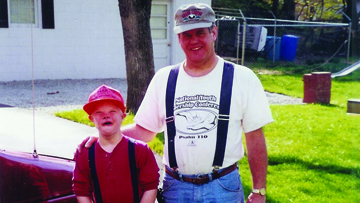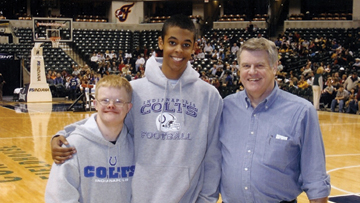You have free articles remaining this month.
Subscribe to the RP Witness for full access to new articles and the complete archives.
Last election day the pro-life movement faced its worst political setback since Bill Clinton’s 1992 victory.
Barack Obama favors partial birth abortion. He pledges to name Supreme Court justices who promise to uphold the 1973 pro-abortion Roe v. Wade decision. Yet this movement has a less political side that keeps making steady progress in life over death.
Technology has played a part in the measurable progress. The number of legal abortions dropped from 1.3 million in 1985 to 820,000 in 2005. Crisis pregnancy centers now use sophisticated ultrasound machines so a pregnant mother in a crisis can see the baby, often prompting her to keep the baby. “Well over 80 percent of women who see the ultrasound choose life,” says Brian Boone, president of the central Indiana Life Centers, which provide help for pregnant women.
Even in the political arena, the Democratic Party seems to be backing away from its adamant pro-abortion position. Pro-life candidates have been welcomed in races for Congress and hold several seats now, with financial support in their campaigns from the national party. Pro-life Democrats also successfully lobbied for a slight shift toward life in the party’s platform language, with a call to reduce the need for abortion.
Those moves might be explained politically. Democratic strategists could see how the party was losing close races, with family-values voters swinging to the Republican side in the 2000 and 2004 elections. Some Democrats also have been morally troubled by the death-wish mentality of the pro-abortion movement.
Babies with Down’s syndrome are aborted at an 80- to 90-percent rate through prenatal screening. With support from a leading pro-choice advocate, Sen. Edward Kennedy, Congress adopted legislation in the fall to discourage the killing of babies who would be born with this disability. The legislation requires doctors to give families information about the condition as well as adoption opportunities.
Newsweek magazine, hardly known as a pro-life publication, noted in a recent story that doctors often give insensitive and out-of-date information to mothers with a Down’s syndrome baby in the womb, sometimes encouraging abortion. That story by Mary Carmichael also reported how families often wind up stronger through the experience with a child with this disability.
Nominated for vice president, Alaska Gov. Sarah Palin gave a boost to this more accurate perspective on these children by giving birth to her son Trig. She provided encouragement to parents just by practicing the pro-life preaching that all humans have intrinsic worth.
Richard and Beckie Johnston know the natural fear of parents when they find out their child has this special need. They already had two children, Brad and Kim, when Stephen was born in 1990. Johnston has been pastor of Second RPC in Indianapolis, Ind., for 16 years. (Brad is now pastor of the Walton RPC in New York state.) Rich also taught public school for 20 years. “Like most parents of Down’s syndrome, I rejected Stephen in the first hours of his life,” Johnston said. “I wanted a normal child.” The diagnosis for Stephen didn’t change, but Johnston’s thinking did, over a 10-year period. “Through his special needs, I learned what is really important in life,” Johnston said.
Stephen just turned 18. “Each morning he hugs me, and each night he says ‘I love you.’ He floods my life with joy, enthusiasm, simplicity and love,” Johnston said. “To Stephen I am the most important person in the world, and he embraces me with his smile. We are best friends and buddies.”
Rich and Second RPC’s other teaching elder, Roy Blackwood, have for many years been instructing on the doctrine of Christ’s kingdom as the crucial foundation for His building of His church in Indiana. Roy has tended to emphasize the doctrine as outlined by Scottish RP pastor William Symington in Symington’s book, Messiah the Prince. Roy wrote his doctoral thesis on the kingdom and Symington’s work. The outline includes the necessity and reality of Christ’s kingdom, followed by His qualifications (dignity, near relationship to His people, wisdom, power, right motives, love, authority) and then the origins (in God), nature (spiritual but with physical impact) and unlimited extent of His kingdom.
When Rich has taught on the kingdom in recent years, he often has focused on the unlimited extent of it. He explains how he has learned so many lessons through Stephen’s life, sometimes painful but ultimately teaching him kingdom truths he could not have learned any other way. “Jesus made it clear in John 9 that His sovereignty specifically extends into the life of a person born with disabilities,” said Johnston. The purpose is “that the work of God might be revealed in his life.”
Politically the pro-life movement is not enjoying the best of times. But the movement has parallels with other humanitarian efforts, such as the abolitionist attempts to abolish slavery, or the civil rights movement. These efforts don’t thrive solely on politics or victories at the ballot box, though they can help. A dedicated few, instead, persevere in the conviction that life is preferable to death, even for babies with disabilities.
—Russ Pulliam
Russ Pulliam is a contributing editor to the Witness.


